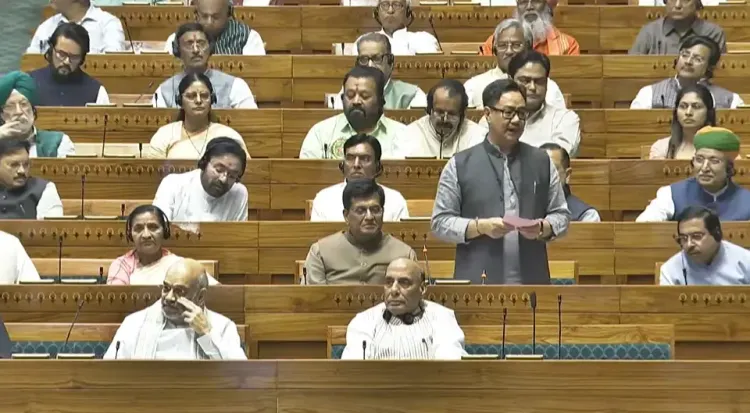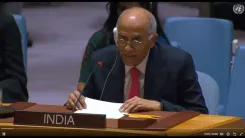Kiren Rijiju Critiques Opposition's Claims on Waqf Bill

Synopsis
Key Takeaways
- Kiren Rijiju emphasizes the non-religious nature of the Waqf Amendment Bill.
- The bill aims for better governance and transparency in Waqf properties.
- Management of Waqf properties will remain with respective authorities.
- New amendments allow appeals against Waqf Tribunal decisions.
- Criticism of the bill is seen as misinformation by the Minister.
New Delhi, April 2 (NationPress) Union Minister for Minority Affairs Kiren Rijiju strongly criticized the Opposition for spreading misinformation regarding the Waqf Amendment Bill and urged the doubters and critics to stop misleading the public about the proposed reforms.
After presenting the bill in Lok Sabha, the Minister elaborated on how the Bill is not associated with religion and aims to enhance transparency and improve the governance of Waqf properties.
He dismissed allegations of government intervention in Waqf properties, including mosques and dargahs, asserting that their management will remain under their control.
“Waqf boards will operate under state governments. This will benefit marginalized groups, including Pasmanda Muslims, along with women and children,” he stated.
“This bill is prospective and not retrospective. It is not designed to confiscate anyone’s property,” the Minister remarked, countering the falsehoods propagated by opponents.
In a scathing attack on the Opposition, he noted that these were the same individuals who misled the public about prior legislation.
“Previously, they asserted that the Citizenship Amendment Bill would strip Muslims of their citizenship rights. I want to ask, has anything like that occurred?” he questioned.
The Minister also highlighted the amendments suggested by the Joint Parliament Committee (JPC) regarding the bill.
“Under the Waqf Bill, the District Collector was the ultimate authority on land ownership. The JPC recommended certain modifications, which we have accepted,” he informed the House.
“We had initially proposed two members on the Waqf Tribunal, but the Committee recommended three members with a fixed tenure,” he added.
He further mentioned that Section 40 of the Waqf Bill, which was considered the most draconian law, has now been removed.
“It previously granted Waqf Boards the authority to claim any property as their own. This will no longer be the situation,” he emphasized.
The latest amendments in the Bill also allow for an appeal in higher courts if the concerned party is dissatisfied with the Waqf Tribunal's decision. Previously, the decisions of Waqf Boards and Tribunals were unchallengeable.









